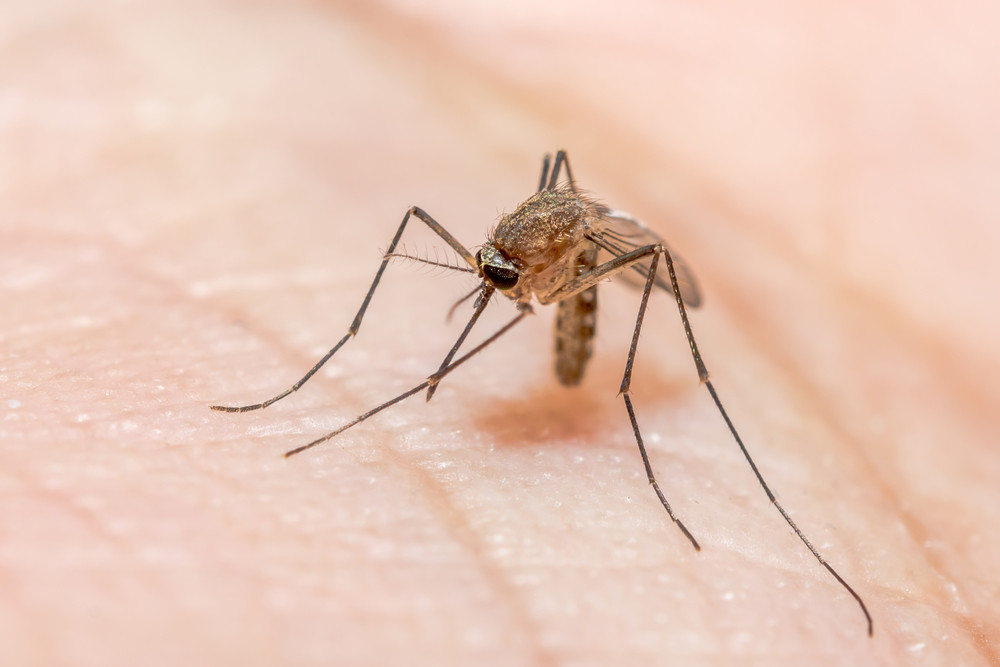Popular Reads
Top Results
Can't find what you're looking for?
View all search resultsPopular Reads
Top Results
Can't find what you're looking for?
View all search resultsWords matter in Papua’s malaria fight
We recommend more targeted and context-specific strategies to accelerate malaria elimination in Papua, with a focus on culturally responsive communication, active community engagement and integration into existing health services.
Change text size
Gift Premium Articles
to Anyone
P
apua accounted for 93 percent of Indonesia’s 527,000 malaria cases in 2024, as elimination efforts continue to face multiple challenges, including local perceptions that normalize malaria as an ordinary illness, emphasizing the need for more effective communication.
In several districts, malaria transmission remains alarmingly high, with over 40 percent of the population infected each year. Papua’s rugged geography makes access to healthcare in remote areas difficult. In addition, there are at least seven variants of the local mosquito species (Anopheles farauti), each exhibiting complex behavior, found across the region, including in Papua New Guinea.
Another major challenge is the widespread belief among Papuan's that malaria is merely a “normal illness” and not life-threatening. Some local beliefs even attribute its cause to spirits or the weather, leading many to neglect both prevention and medical treatment.
A 2024 study published in the Malaria Journal found that limited understanding of malaria’s risks is one of the main barriers to timely and appropriate treatment. Misconceptions about the illness lead to poor adherence to antimalarial medication and limited use of insecticide-treated nets, both proven effective in preventing mosquito bites.
As researchers in public health and parasitology, we recommend more targeted and context-specific strategies to accelerate malaria elimination in Papua, with a focus on culturally responsive communication, active community engagement and integration into existing health services.
Papuan misunderstandings about malaria are shaped by broader social dynamics, including a strong reliance on traditional healers, religious leaders and local elders.
Gender inequality also plays a role. In many Papuan communities, men typically make health-related decisions, while women’s voices are often excluded. This dynamic can have serious consequences for diseases like malaria, where timely treatment is crucial.
For instance, some mothers avoid taking their children to a clinic without the father’s permission if he is away for work. As a result, treatment is delayed, increasing the risk of the child developing severe malaria.
To address these social factors, the government must shift the narrative: malaria is a serious disease that can be fatal if not treated promptly. This approach has already proven effective in reducing cases and sustaining progress in parts of West Papua and in Timor-Leste.
Culturally sensitive, patient-centered healthcare is essential for improving community understanding of why it is crucial to seek proper medical care.
This is especially true since formal treatment has been shown to improve children’s health, something deeply valued in Papuan family belief systems. In turn, improving child health can positively influence families’ approach to malaria prevention and care.
The 2024 study showed that malaria communication strategies are more effective when mothers are encouraged to serve as key health decision-makers within their households.
In many families, mothers are the first to notice signs of illness. They play a vital role in deciding when to seek timely care, ensuring antimalarial treatment is completed, and promoting consistent use of mosquito nets.
Working with trusted community figures, such as religious leaders, teachers and health workers, has also proven to be an effective strategy for strengthening malaria elimination efforts.
These individuals often serve as the first point of contact for health advice and hold significant social credibility. However, their impact remains limited without adequate training and resources to support their role.
A UNICEF study in Papua found that when community leaders receive effective training, the number of people getting tested and practicing malaria prevention increases significantly.
Beyond improving communication skills, this form of community-based engagement helps drive long-term behavioral change. These initiatives can be integrated into existing health programs through church networks and civil society partnerships. They are low-cost and have lasting impacts on malaria control and public health.
In Papua, oral and visual communication in local languages works better than written materials.
The region has a strong oral tradition, with 482 local languages, while literacy rates remain relatively low.
Research from 2024 showed that malaria education using traditional storytelling, local songs and face-to-face dialogue is more effective in raising awareness and encouraging the use of bed nets.
Public information materials on malaria should be adapted to local cultural contexts. Authorities should collaborate with communities to create culturally grounded materials that clearly communicate the risks of malaria. This approach can build trust and sustain long-term community engagement.
Nowadays, social media is a powerful tool for reaching younger generations with messages about malaria prevention.
These platforms can be used to raise awareness about maternal and child health, correct misinformation about malaria and encourage treatment-seeking behavior and the use of insecticide-treated nets.
Fragmented health services in Indonesia reduce the efficiency of malaria programs and increase out-of-pocket expenses for patients.
Given budget and infrastructure constraints, integrated healthcare services provide a more practical solution for improving maternal and child health while reducing unnecessary expenditures.
Evidence shows that malaria messaging is more effective when integrated with programs, such as nutrition, sanitation, antenatal care and postnatal visits. This integrated approach improves outcomes for both malaria control and maternal and child health.
---
Ermi Ndoen is a public health researcher at the Institute of Resource Governance and Social Change (IRGSC) Kupang, Ari Probandari is a public health professor at Sebelas Maret University, E. Elsa Herdiana Murhandarwati and Kharisma Dewi are lecturers at Gadjah Mada University. Rhondemo Kikon is a WHO-TDR Implementation Science Fellow. The article is republished under a Creative Commons license.











